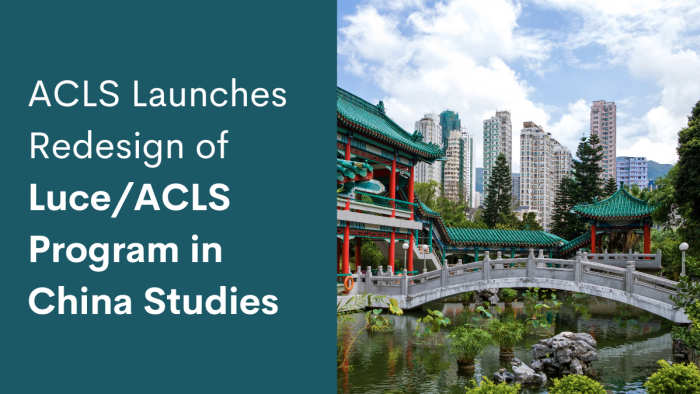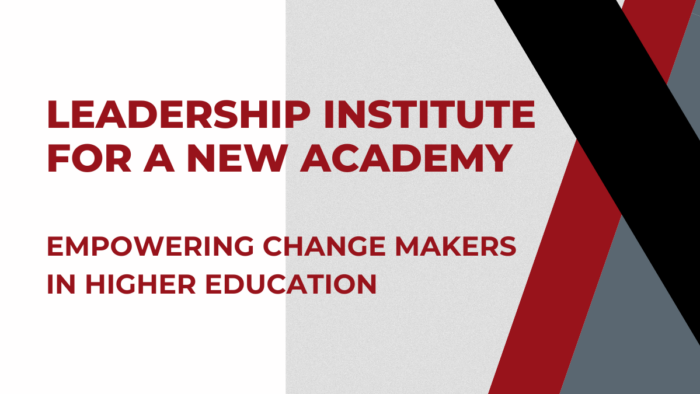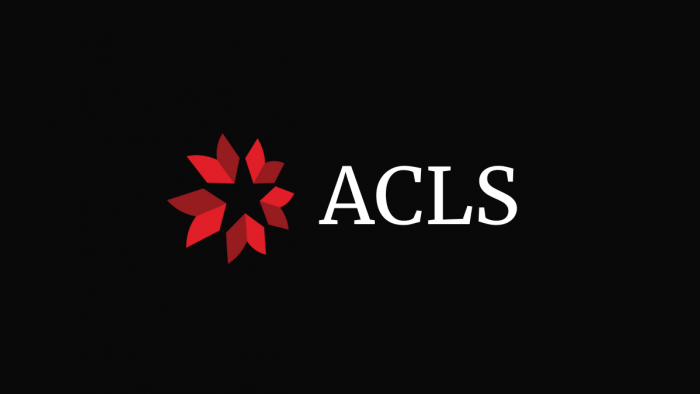

Welcome to fall 2023!
Here at ACLS we begin the academic year with excitement about our fellowship and grant competitions and upcoming convenings and events, as well as the establishment of a new department.
We are acutely aware of the clouds gathered over us: the Supreme Court’s late June ruling against affirmative action; dozens of educational intimidation laws against teaching about race and gender, a number that is rising; the recent proposal by West Virginia University to close down or radically reduce degree programs—a dangerous and worrying path for a flagship state university; and growing skepticism about the value of higher education.
Clichés about inflection points and crossroads aside, we share the sense that this will be a testing year for how far we academics can take collective, coordinated action in our fragmented, competitive systems.
At ACLS, we aim not to “admire the problem,” as we sometimes say, but to develop concrete resources that meet people where they are. This year you will see us sharing models of what works to raise enrollments and public consciousness of the value of our fields; circulating blueprints of change for doctoral education and scholarly norms that make academia more responsive and welcoming; rewarding the publishing of books free and open to all; and building alliances across fields, transcending the borders of arts and science to embrace law, public health, architecture, environmental science, and other areas.
We continue to shape our activities to meet the needs we learn about from scholars involved in the development of programs like our new HBCU Faculty Fellowship and Grant Program and the newly redesigned Luce/ACLS Program in China Studies. We’ll consult across our constituencies on our new strategic plan, which we will launch before the end of 2024. We are pouring energy into seeking additional funding for scholars.
At ACLS, we aim not to “admire the problem,” as we sometimes say, but to develop concrete resources that meet people where they are.
Making the conditions of life and work in the academy as healthy and as conducive to outstanding scholarship as possible is a goal to which ACLS has been devoted for many years. In our 2020 strategic plan, we committed to work on equity and justice in several intentional and highly visible ways. With the help of the Mellon Foundation, we secured funding in 2019 to support our work on equity with our constitutive members, the learned societies, in what we initially called “Summer Institutes.” In fall 2020, Dr. Jovonne Bickerstaff joined ACLS and transformed the project into the Intention Foundry, a series of online and in-person workshops bringing graduate students, early career faculty, higher education administrators, and society directors and staff together to develop actionable solutions to make our fields and disciplines equitable, welcoming places – where historically marginalized groups not only have a place at the table, but help set the agenda, as Jovonne said at our Annual Meeting last April. After three years of successfully running this work in the president’s office, it is time to establish it in its own department. I am proud to announce that Jovonne will become Director of IDEA, Intentional Design for an Equitable Academy, working with Program Officer Keyanah Nurse (who manages our Digital Justice Grants Program) and Program Associate Katie Reis. Jovonne played a major role in our Leadership Institute for a New Academy, which advances the insights gained in our Luce Design Workshop, and she will also steward the next phases of this work in her Director role.
I am also delighted to announce that Dr. Deena Ragavan, who has served for nearly two years as Senior Program Officer in International Programs, has been promoted to Director of International Programs. With Program Manager Laura Mowry and Program Associate Morgan Day, Deena oversees a complex array of competitions and other forms of support for scholars working on topics and areas outside north America. She collaborated this year with Dr. Diana Mishkova of the Centre for Advanced Study Sofia on a three-year summer institute for scholars of Eastern Europe, which met in Blagoevgrad this year. Working with our partners in the Luce Foundation, Deena was instrumental in designing the new Luce/ACLS Program in China Studies, which we launched this summer.
Vice President James Shulman and I look forward to working with Jovonne, Deena, and John Paul Christy, Senior Director of US Programs, as we seek to gather additional support for the humanities and interpretive social sciences in the coming year.
This month I share Marge Piercy’s poem in honor of meaningful work, which I have the good fortune to do here at ACLS, and which I read aloud at our summer convening of our Leadership Institute in Tarrytown, New York. It is a tribute to marvelous colleagues and to all our partners: reviewers, participants, speakers, advisers, donors, and funders. As always, there is much more to tell you. But I will simply say thank you, loud and clear, to all of you whose support helps sustain us – and stay tuned!

Joy Connolly
To be of use
By Marge Piercy
The people I love the best
jump into work head first
without dallying in the shallows
and swim off with sure strokes almost out of sight.
They seem to become natives of that element,
the black sleek heads of seals
bouncing like half-submerged balls.
I love people who harness themselves, an ox to a heavy cart,
who pull like water buffalo, with massive patience,
who strain in the mud and the muck to move things forward,
who do what has to be done, again and again.
I want to be with people who submerge
in the task, who go into the fields to harvest
and work in a row and pass the bags along,
who are not parlor generals and field deserters
but move in a common rhythm
when the food must come in or the fire be put out.
The work of the world is common as mud.
Botched, it smears the hands, crumbles to dust.
But the thing worth doing well done
has a shape that satisfies, clean and evident.
Greek amphoras for wine or oil,
Hopi vases that held corn, are put in museums
but you know they were made to be used.
The pitcher cries for water to carry
and a person for work that is real.




